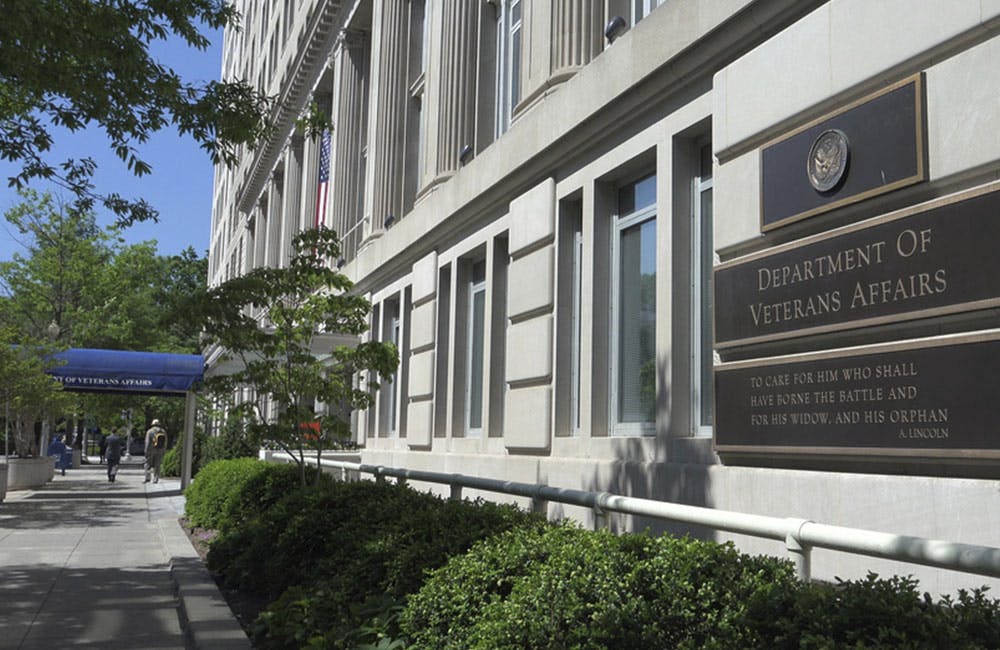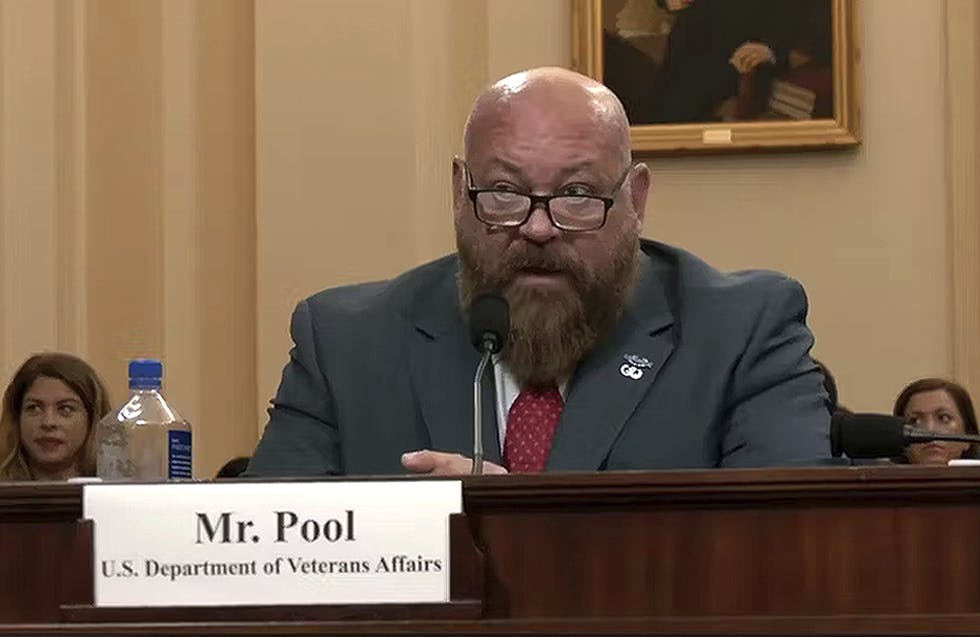DHA Pivots EHR Deployment to Improve Virtual Care, Data Exchange
Although the agency paused MHS Genesis deployment during the pandemic, leaders have continued progressing health record modernization alongside VA.

The Defense Health Agency is making progress in its electronic health record (EHR) modernization and health data exchange after temporarily pausing the rollout this spring due to the COVID-19 pandemic.
DHA’s new EHR system, MHS Genesis, will create one centralized patient record with the Department of Veterans Affairs’ EHR system for the lifespan of soldiers and their families. The program began its “Travis Wave” in September and was scheduled to begin the “Nellis Wave” at Nellis Air Force Base in Nevada this summer.
The agencies halted the effort at military and veterans health facilities to allow frontline workers to focus on responding to COVID-19. Meanwhile, DHA had adjusted its strategy to improve workflows and integrate virtual medicine technology pioneered by VA, said Defense Healthcare Management Systems Program Executive Officer Bill Tinston. This both improved MHS Genesis while also providing telemedicine capabilities that have become key amid the pandemic.
“Extending those workflows, improving the access to care through virtual technologies to both the … legacy side and creating integration into the MHS Genesis solution that we have out there and doing that rapidly — so we’re looking at solutions, really adopting the VA solution and integrating with VBA in both tele-ICU and virtual video visits,” Tinston said on a panel at GovernmentCIO Media & Research’s virtual event on data sharing. “We’re looking at getting something beginning to deliver this month in this space.”
Tinston added that the changes the EHR is undergoing were already scheduled into the scope of the MHS Genesis project, although the challenges brought on by COVID-19 caused his team to move it up from further down the road. If anything, the pandemic made it clear to military health officials that there was an immediate need for virtual health care, he said.
DHA was able to vastly expand its virtual health capabilities not just through its collaboration with the VA, but also through the deployment of commercial peer-to-peer voice and video services as the White House relaxed HIPAA standards.
DHA ultimately chose Google Duo, Microsoft Skype and FaceTime as the platforms to enable telehealth due to the common use of them across America, said DHA CIO Pat Flanders during the event.
Within the U.S. and internationally, DHA used Cisco CMS for virtual health, Flanders added, explaining that it was easier to scale that solution up.
“We took that capability, took the servers we had because they were already accredited, and it was easier just to scale them up, then go buy something new, so we did that and now we’ve got the capacity to do 16,00 visits a day overall,” Flanders said. “On top of that we had to modify all the scheduling software in our legacy systems so that you could actually make an appointment that was a virtual appointment with the appropriate links.”
As DHA worked to scale up virtual health, largely with the aid of the VA and its preexisting telehealth programs and capabilities, the agencies launched the Joint Health Information Exchange in April.
The exchange integrates into MHS Genesis and the VA’s EHR, enabling health data sharing with providers outside of the VA and defense health systems who care for current and retired service members.
“Based on the appointments, we go out and we find all the community health care provider information and it’s sitting there for the position of the providers when they come in the morning,” Tinston said. “It saves them time, they can look at it immediately, and then as we go forward we’re … tying in thousands, tens of thousands of additional health care facilities and providers.”
As DHA and the VA continue working on improving health data sharing and their common-record EHR, Tinston emphasized that the agencies will continue working and adapting together to improve medical care for providers and patients.
“How do we as federal health care providers deliver more capability more quickly and be more responsive? And we have spent the time looking at how to do that together,” he said.
This is a carousel with manually rotating slides. Use Next and Previous buttons to navigate or jump to a slide with the slide dots
-

Trump AI Orders Call for Speed in Building Infrastructure
The directives call for expanding AI infrastructure, streamlining federal permitting and promoting AI exports.
4m read -

DOD Accelerates Software Modernization with Agile DevSecOps Push
The Pentagon's software implementation plan tackles cultural hurdles and integrates security early to deliver critical capabilities faster.
6m read -

White House Unveils AI Action Plan to Secure Global Dominance
The strategy outlines steps to accelerate private sector innovation, build critical infrastructure and advance U.S. leadership in AI policy and security.
3m read -

VA's Platform One Powers Rapid Innovation to Bolster Digital Services
VA's Platform One accelerates software development timelines from weeks to hours, ultimately enhancing digital services for veterans.
5m read -

Federal Leaders Receive Federal IT Efficiency Flywheel Awards from GovCIO Media & Research
Five federal IT leaders received Flywheel Awards for driving innovation and modernizing technology at the Federal IT Efficiency Summit.
5m read -

Doing More with Less is Muscle Memory for IRS, Former Deputy CIO Says
Darnita Trower discusses her experience, the legacy she’s left behind and how she pushed the IRS to modernize itself,
20m watch -

Opinion: Original Intelligence Is the Missing Piece for AI Transformation
Limitations of AI agents and development drive growing needs for workforce development and "original intelligence."
3m read -

VA CIO Targets Modern IT and Smarter Workforce Alignment
Agency leaders told lawmakers they are focused on trimming legacy systems and restructuring its workforce to streamline operations.
3m read -

Pentagon's $200M AI Contracts Signal Broader Effort to Transform Talent
The Army is leveraging Silicon Valley, reservist programs and new hiring strategies to integrate critical digital skills in its ranks.
5m read -

AI Foundations Driving Government Efficiency
Federal agencies are modernizing systems, managing risk and building trust to scale responsible AI and drive government efficiency.
43m watch -

Inside DOD’s Push to Grow the Cyber Workforce Through Academia
Diba Hadi gives her first interview since becoming principal director of the DOD’s Cyber Academic Engagement Office.
15m listen -

Agencies Tackle Infrastructure Challenges to Drive AI Adoption
Federal agencies are rethinking data strategies and IT modernization to drive mission impact and operational efficiency as new presidential directives guide next steps.
5m read Partner Content
















